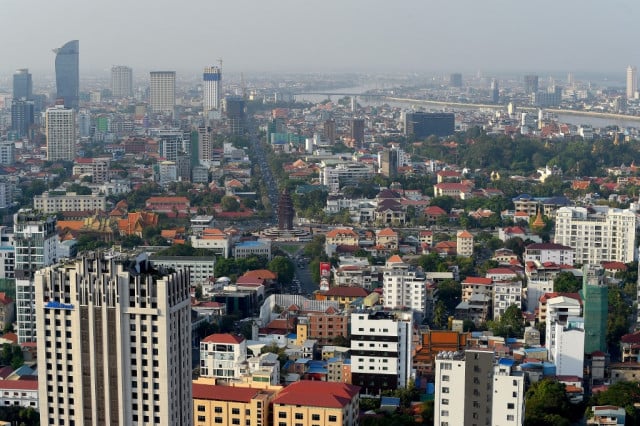Capital Gains Tax Needed to Stabilize Real Estate Sector

- Romdoul Chetra and Phoung Vantha
- September 8, 2020 8:02 AM
While the real estate sector warns that new taxes might affect the market, economists argue it could save the sector from a boom-bust cycle.
PHNOM PENH--Economists have hailed Cambodia’s move to introduce capital gains tax as a positive step in line with the national strategy to revive the economy in the wake of the Coronavirus Disease 2019 (COVID-19) pandemic and prevent a collapse of the real estate sector. However, those within the real estate business have expressed concern over the timing of the new tax regulations.
The General Department of Taxation on Aug. 27 announced that the government will begin implementing a 20 percent capital gains tax by early 2021, which will apply to all properties and other capital investments such as leasing, stocks and foreign currency.
Economist at the Royal Academy of Cambodia Ky Sereyvath argued that capital gains taxation will make a significant contribution to the economy, which is much needed as the COVID-19 pandemic continues to disrupt key industries such as garment manufacturing and tourism. Sereyvath noted that the addition of capital gains legislation will bring Cambodia’s tax regime closer to international standards, with many ASEAN and European countries charging a 30 percent tax rate on properties sold
Meanwhile, Chrek Soknim—president of Cambodian Valuers and Estate Agents Association—said that if the state applies this capital gains tax, the real estate business will be affected, as it will add to the burden on the real estate sector, which he claimed is struggling to survive under the uncertainty of pandemic.
COVID-19, he warned, could last longer than expected and 2021 is not the time to set capital gains taxes or other taxes on businesses or citizens.
However, for Sereyvath, such legislation is needed to prevent the explosion or implosion of the real estate sector.
He explained that when capital gains tax is enforced, people will stop rushing to buy and sell land. This, he argued would increase the value of real estate due to the higher level of taxation and promotes productive land use with clearer goals.
It has been over a decade since the government first mulled over the introduction of capital gains taxation and was originally scheduled to be implemented this year, but due to disruption and the need to disseminate information more widely, the government has decided to postpone its introduction until next year.















